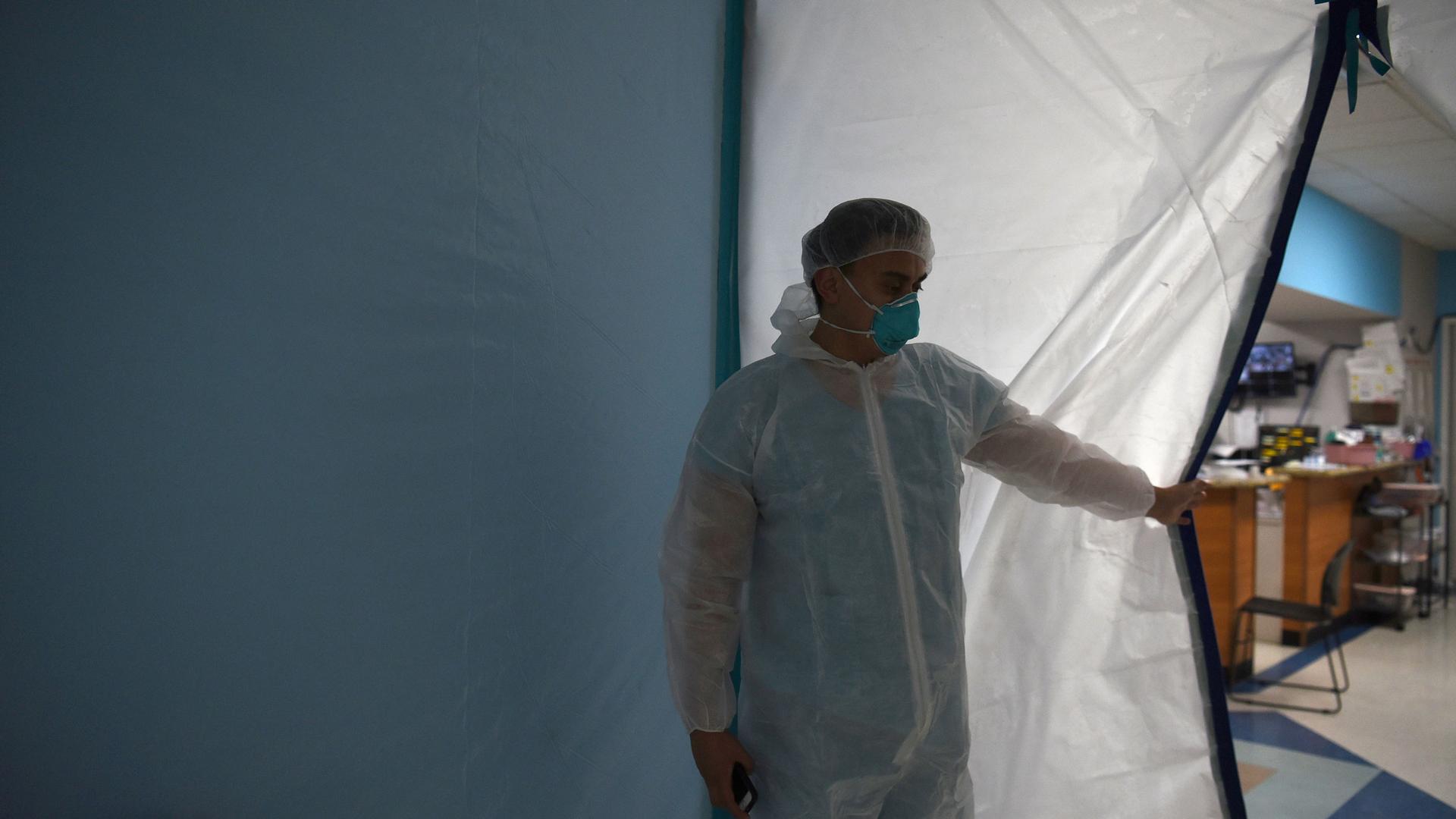Discussion: Are countries prepared for a coronavirus surge?
A medical worker opens a makeshift door to the United Memorial Medical Center’s coronavirus intensive care unit in Houston, Texas, June 29, 2020.
The number of US coronavirus deaths exceeded 130,000 on Monday, following a surge of new cases that has put President Donald Trump’s handling of the crisis under the microscope and derailed efforts to restart the economy.
The overall rate of increase in US deaths has been on a downward trend despite case numbers surging to record levels in recent days. But health experts warn fatalities are a lagging indicator, showing up weeks or even months after cases rise.
Nationally, cases are approaching 3 million, the highest tally in the world and double the infections reported in the second most-affected country Brazil. Case numbers are rising in 39 US states, according to a Reuters analysis.
Related discussion: How the coronavirus crisis is exacerbating food insecurities and global inequities
Sixteen states have posted record daily case counts this month. Florida confirmed a record-high 11,000 in a single day — more than any European country reported in a single day at the height of the crisis there.
After months of social distancing and lockdown measures to prevent the spread of the coronavirus, some countries are reopening. But fears of a second wave of infections from COVID-19 are concerning.
As part of our regular series discussing the pandemic, The World’s Elana Gordon moderated a live conversation with William Hanage, associate professor of epidemiology Harvard’s T.H. Chan School of Public Health.
Reuters contributed reporting.
The World is an independent newsroom. We’re not funded by billionaires; instead, we rely on readers and listeners like you. As a listener, you’re a crucial part of our team and our global community. Your support is vital to running our nonprofit newsroom, and we can’t do this work without you. Will you support The World with a gift today? Donations made between now and Dec. 31 will be matched 1:1. Thanks for investing in our work!
